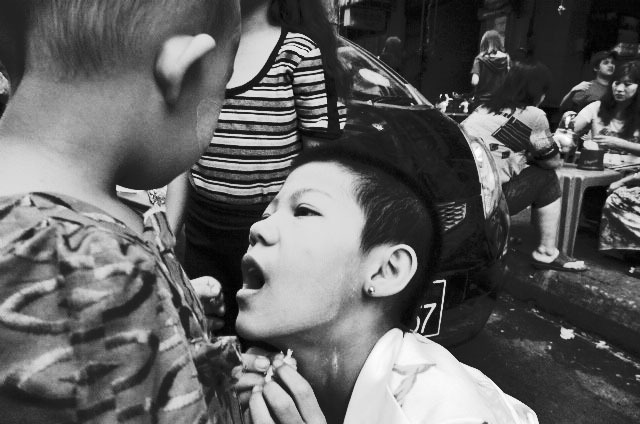Nam to Cambodia
By Omar
It feels soft here after the mercenary rush of Saigon, said Happy Ghost. Vietnam’s population is 93 million. Cambodia has 18 million. Vietnam is about hustle and money. Cambodia is about survival. Memory. Hope and work for a better future ... heavy weight ... no one talks about the past … memories are dead ... gentle smiles and resilient people.
An emotional IQ level of -7 lives in Turkey, Indonesia, Vietnam, Cambodia, and China. Do the math. Perpetual adolescence is an epidemic endemic disease.
That’s what happens when you kill all the educated people, said Rita. It will take a generation and then some until we get our heads and hearts adjusted. It explains our reality and ground truth.
Vietnam is a smaller version of China and Cambodia is a small version of Nam.
Vietnamese plant rice, Cambodians watch it grow and Laotians hear it grow.

What does this say about sensation and awareness in three separate cultures, asked Rita. Everything.
One day it felt great to put on solid walking boots at 0515 as narrow Saigon alleys stirred to life. How the gentle soul and metatarsal support pressure delighted the skeletal structure. Roll the bones. It’s a walking meditation … Posture … Alignment … It’s a long walk … Walking makes the road.
At 0600 Tan San Nut airport was deserted below a soft orange sky. Outside or inside a terminal we are all terminal cases. I met a Vietnamese woman, 60, widowed now for a year returning home to Perth after visiting her son and grandchildren. She shared pictures of her standing by the ocean, with friends when she was 38, with her son, at a party. She talked how she and her husband were farmers for ten years in Australia. How she misses him. How she remembers her son. She looked wistful and resigned to her fate. She’ll grow old with friends in Perth remembering.
In the departure area a woman working for the U.N. in Geneva and her boyfriend were visiting Cambodia for two weeks. She planned to visit her girlfriend, another U.N. worker in Phnom Penh, the capital. Agrarian. Rural. Her friend’s been there three months working on the trial of a Khmer Rouge leader.
She does admin work. She says it’s a real mess. The other international legal representatives bicker and fight amongst themselves. Nothing gets done. The trial lasted 1,001 years. It cost $100,000,000. That’s a lot of zeros for the Year Zero legal campaign. A lawyer said, it’s not about Justice, it’s about Procedure.
A Swiss woman in Siem Reap worked for the U.N. in various African assignments. She said, I went to a U.N. gathering in Africa. All they did was argue and promote their specific turf and agendas. The internal squabbling was pathetic. It was pitiful.

Imagine, said Rita, You live in Cambodia. One day you wake up. You have money and opportunities to provide everyone with clean water, free high quality education, medicine, safe well-managed shelters for orphans and abused women and all the essentials for everyone who needs it. NGO businesses scream. Shocking! They’d be out of work. They’d have to go somewhere else, like North Korea or Burma. The Cambodians would be completely empowered to run their own country free of outside influence.
Yeah, said Rita, Don’t hold your breath. Why learn how to fish when the fish is free?
Storytellers flew into Cambodia on a prop-jet seating 100 jaded travelers on the one-hour flight. Low and slow. Whir.
A caustic European woman said to her husband, Where are we flying today? Siem Reap? Oh how tedious.
Like thousands of visitors they’ll stay for two or three days in a guesthouse or four star hotel, hire a tuk-tuk driver and DO Angkor, eat in tourist restaurants staffed by bored, happy children pretending they are mature and sensible.
Look at all the people European tourists say, how sweet. They will tour 8th century Khmer civilization with their mechanical cameras, not their heart. They’ll dance under stars with lightning. Tourists zoom around and leave. We came, we ate, we drank, we toured, we slept, and we left. Hail Caesar.
We skimmed west over the mighty Mekong, brown snake rivers, rice fields, strong lush green land, water and islands with southern mountains looming through low grey clouds. The baby plane soared, floated, turning north over the Tonle Sap Lake. It is the largest lake in Asia fed by water flowing from Tibet through China and Laos.
All the way down to the delta, said Gravity.


 Share Article
Share Article 